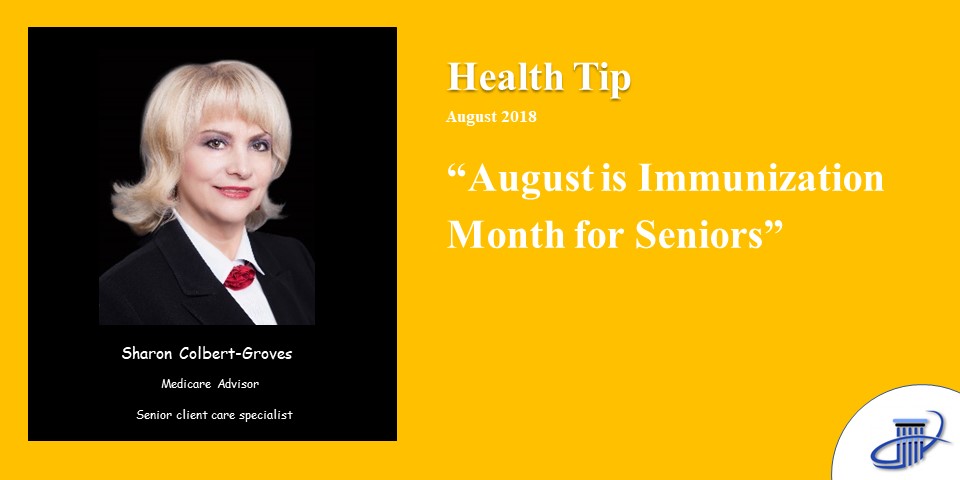August is Immunization Month for Seniors.
This is what Medicare Part B covers and doesn’t cover.
Influenza (flu) vaccine. Medicare normally covers one flu shot per flu season. You pay nothing for the flu shot if the doctor or other qualified health care provider accepts assignment.
Hepatitis B is a serious disease caused by a virus that attacks the liver. Medicare covers these shots for people at medium or high risk for Hep B. Some risk factors include hemophilia, End Stage Renal Disease, diabetes, if you live with someone who has Hep B, or if you’re a healthcare worker and have frequent contact with blood or body fluids. Check with your doctor to see if you’re at medium or high risk for Hepatitis B. You pay nothing for the shot if the doctor or other qualified health care provider accepts assignment.
Pneumococcal Shots. Medicare covers this shot to help prevent pneumococcal infections (i.e., types of pneumonia). Medicare also covers a different 2nd shot if it’s given 1 year (or later) after the 1st shot. Talk with your doctor to see if you need one or both shots. You pay nothing for these shots if the doctor or other qualified health care provider accepts assignment for giving the shot.
Shingles Shots. Shingles are caused by the varicella-zoster virus (VZV), the same virus that causes Chicken Pox. After a person recovers from Chicken Pox, the virus stays dormant in the body (the reason is unknown) and the virus can reactivate years later, causing Shingles.
Shingles is a VERY painful rash that usually develops on one side of the body, often the face or torso. The rash consists of blisters that typically scab over in 7 to 10 days and clears up within 2 to 4 weeks. Some people describe the pain as an intense burning sensation and
can last for months or even years after the rash goes away. This long-lasting pain is called postherpetic neuralgia (PHN), and it is the most common complication of Shingles. Your risk of getting Shingles and PHN increases as you get older.
A new Shingles vaccine called Shingrix (recombinant zoster vaccine) was licensed by the U.S. Food and Drug Administration (FDA) in 2017. The CDC recommends that healthy adults 50 years and older get two doses of Shingrix, 2 to 6 months apart.
Shingrix provides strong protection against Shingles and PHN. Shingrix is the preferred vaccine, over Zostavax®, a Shingles vaccine in use since 2006.
The Shingles shot is not covered by Part Aor Part B. There are some Medicare prescription drug plans (Part D) that cover the Shingles shot. Contact your Medicare drug plan for more information about coverage. It will be subject to your plan’s annual deductible and copays, depending on the tier level on your specific Part D plan.
Sources: Center for Disease Control (CDC); Medicare.gov

